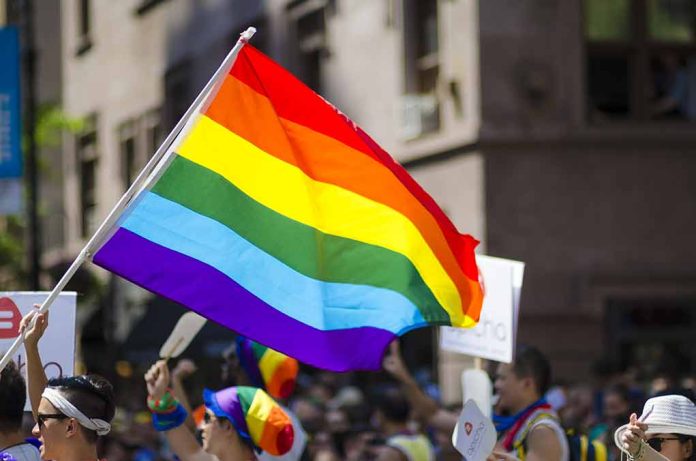
The U.S. Supreme Court is set to hear a case that could redefine parental rights in public education, as Maryland parents challenge a school district’s mandate on LGBTQ-themed storybooks.
Top Takeaways
- The Supreme Court will decide if parents can opt their children out of LGBTQ-themed storybooks in public schools.
- Montgomery County, Maryland removed parental opt-outs for books on gender and sexuality for young children.
- Muslim, Christian, and Jewish parents are challenging the opt-out ban, citing First Amendment concerns.
- The Supreme Court’s decision could have far-reaching implications for parental rights in public schools nationwide.
Parents Take Stand Against LGBTQ Curriculum
A group of Maryland parents from diverse religious backgrounds has taken their fight against mandatory LGBTQ-themed storybooks in public schools to the highest court in the land. The case, Mahmoud v. Taylor, stems from the Montgomery County Board of Education’s decision to remove parental notice and opt-out options for books discussing gender transitioning and related topics for children as young as pre-K.
Supreme Court takes up parents’ challenge to LGBTQ story time in elementary schoolhttps://t.co/fYQ33JtIw2 pic.twitter.com/u0RWWStyOW
— The Washington Times (@WashTimes) January 20, 2025
The “inclusivity” books, introduced in 2022, cover content on gender and sexuality for pre-K to fifth-grade students. Titles like “Pride Puppy” and “Jacob’s Room to Choose” focus on LGBTQ themes, while some books discuss controversial topics such as “intersex flag” and “drag queen.” The school district argues these books are age-appropriate and essential for developing critical reading skills.
Religious Parents Cite First Amendment Concerns
The coalition of Muslim, Christian, and Jewish parents, represented by the Becket Fund for Religious Liberty, claims the books are age-inappropriate and inconsistent with their religious beliefs. They argue that the removal of opt-out options violates their First Amendment rights, particularly their freedom to direct their children’s religious education.
“The School Board has pushed inappropriate gender indoctrination on our children instead of focusing on the fundamental areas of education that they need to thrive,” said Grace Morrison, board member of Kids First, an association of parents and teachers advocating for notice and opt-outs in Montgomery County Schools.
School Board Defends Curriculum
The Montgomery County School Board, which serves over 160,000 students, contends that the books were included to better represent the diverse student body. In March 2023, the district announced it would not allow opt-outs for any reason, citing concerns about absenteeism and social stigma for students represented by the books.
The school board argues that exposure to curricular materials does not infringe on religious rights for public school attendees. They maintain that parents who choose to send their children to public schools are not deprived of their right to freely exercise their religion simply because their children are exposed to materials the parents find offensive.
Legal Journey to the Supreme Court
The parents’ legal challenge has faced setbacks in lower courts. Both the federal district court and the U.S. Court of Appeals for the 4th Circuit ruled against the parents, stating there was no evidence of compulsion to change religious beliefs. However, the Supreme Court’s decision to hear the case has reignited the debate over parental rights in public education.
The Supreme Court is expected to hear the case in the spring. The outcome could have far-reaching implications for parental rights, religious freedom and respecting diverse beliefs in public education across the nation.






















